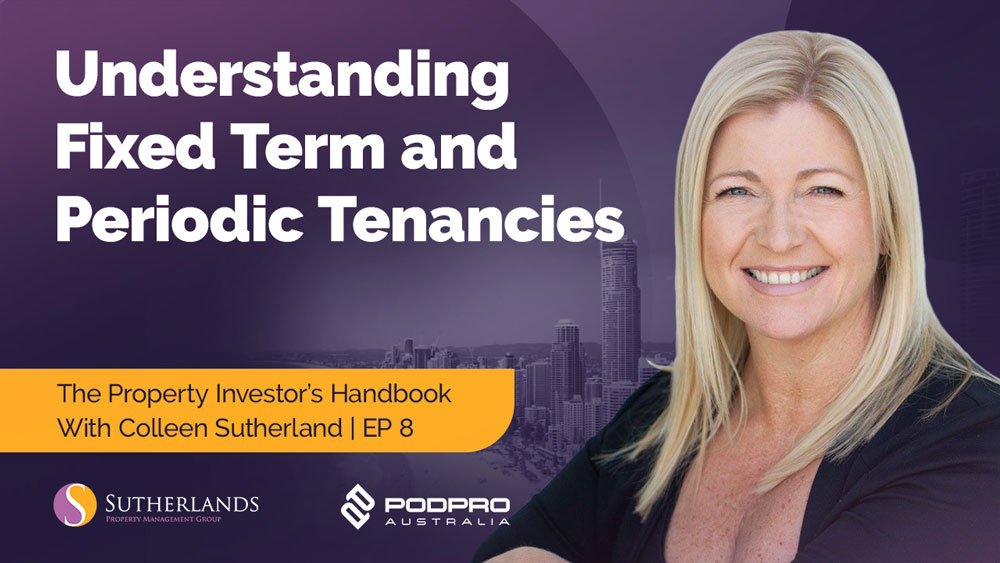Welcome back to another informative episode of the Property Investors Handbook Podcast series. In this episode, we’ll break down the key differences between fixed term and periodic tenancies, their implications for both landlords and tenants, and provide insights into making the right choice for your property.
Understanding Fixed Term and Periodic Tenancies:
Defining the Basics:
Colleen starts off by explaining the fundamental concepts. A fixed term tenancy is an agreement that has a predetermined end date. On the other hand, a periodic tenancy continues beyond the agreed end date or has no specific end date.
Factors Influencing Choices:
Adam inquiries about the factors that influence choosing between fixed term and periodic tenancies. Colleen highlights that while fixed term tenancies offer landlords more control, periodic tenancies provide tenants with more flexibility. In cases where landlords need to make insurance claims, a fixed term tenancy can offer better coverage.
Periodic Tenancies: Grounds for Termination:
Discussing periodic tenancies, Colleen emphasises that new legislation has made it harder for landlords to end such tenancies without valid reasons. Four reasons stand as grounds for termination: significant repair or renovation requiring vacancy, change of property use, sale or property preparation for sale, and the owner or relative moving in.
Balancing Act:
Adam reflects on how periodic tenancies might seem tenant friendly. Colleen agrees, highlighting that the legislation leans toward tenants in these cases, with shorter notice periods required for them compared to landlords.
Tenant Flexibility vs Landlord Control:
Adam raises the issue of tenant preferences for periodic tenancies due to their flexibility. Colleen explains that while flexibility is valuable, it also makes landlords vulnerable to changes in tenant plans, leading to potential difficulties in property management.
Leaving Mid-Fixed Term: Brake lease and Tenant Responsibilities:
Exploring the possibility of tenants leaving mid-fixed term, Adam asks about the procedure. Colleen explains that tenants can leave but need to find a replacement tenant who goes through the application process. This situation is considered a “brake lease” and is treated as a breach of the lease.
Insurance Coverage and Tenancy Types:
Adam delves into insurance coverage differences between fixed term and periodic tenancies. Colleen clarifies that under a periodic tenancy, insurance claims have more limitations regarding timing and amount, while fixed term tenancies offer more comprehensive coverage.
Choosing Fixed Term: Is it Ever Justifiable for Landlords:
Adam wonders if there’s any situation where landlords might prefer periodic tenancies. Colleen outlines that periodic tenancies are mainly recommended for scenarios involving the four valid termination reasons mentioned earlier.
Legislation Changes and Rent Increase:
The conversation shifts to recent legislative changes. Colleen discusses the government’s restriction on how often landlords can increase rent. Rent can now only be increased once a year, and not within 12 months of the last increase.
Adam brings up landlords leaving the market due to increasing interest rates, leading to potential housing market challenges. Colleen acknowledges this complex issue and hints at a possible future podcast topic to delve into it further.
Future Housing Market Considerations:
As the episode wraps up, Adam and Colleen reflect on the significance of proper property management in navigating the intricacies of tenancy types and legislation changes. Join them next week for another insightful discussion on maintenance and budgeting in property management.
Remember, you can access additional resources and information on these topics from Sutherlands Property Management Group’s website. Stay informed and make informed property investment decisions.

